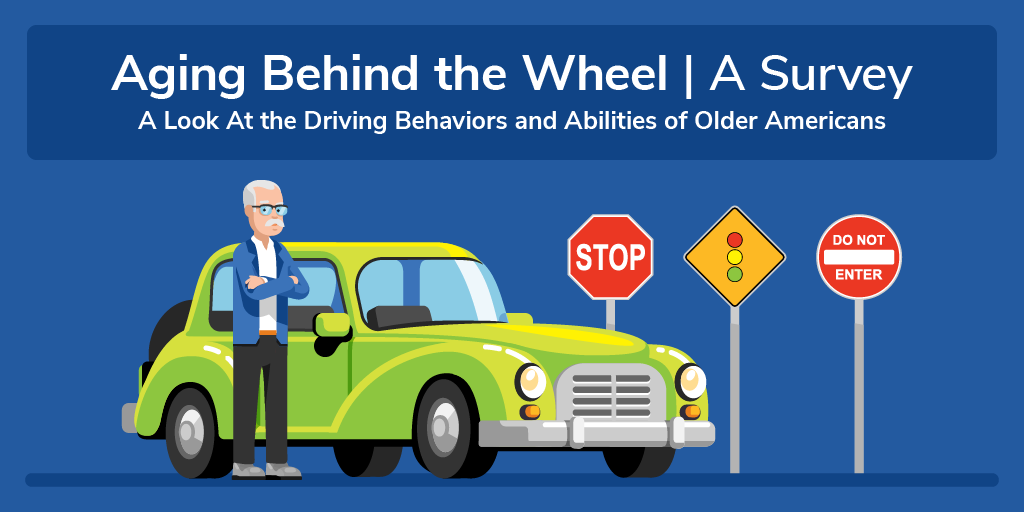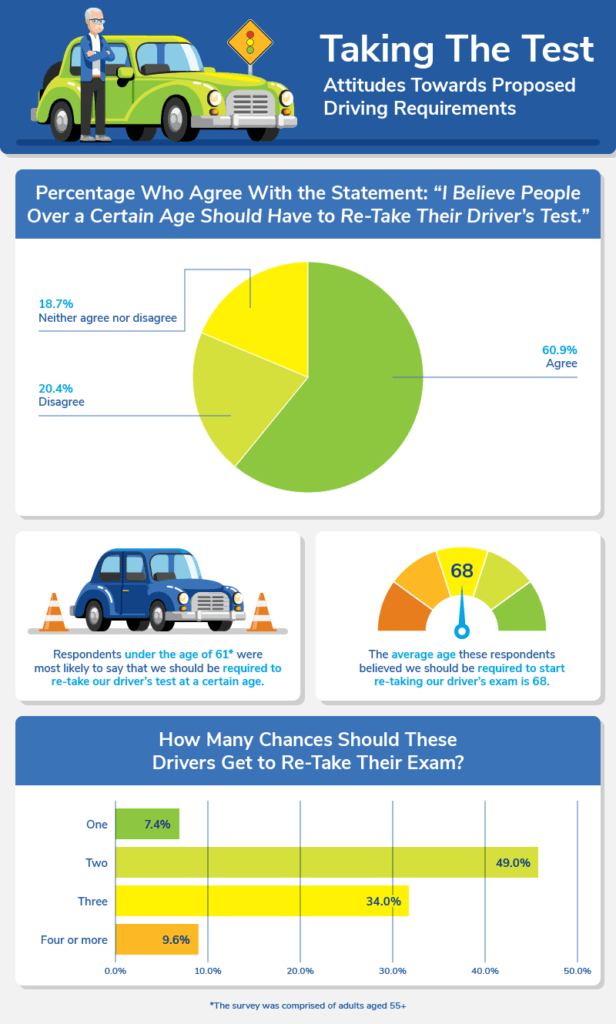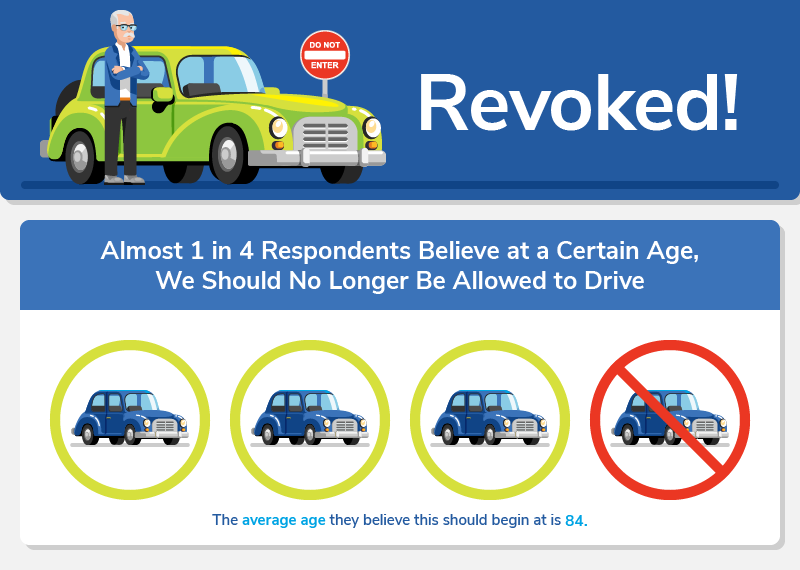The aging process comes with its own set of challenges, from muscle movement to memory retention, and everything in between. At Coventry, we know that the gradual loss of fine motor skills can impact driving abilities, leaving many older adults and their families concerned for their safety on the road. But we wanted to hear from older adults themselves about their driving practices and thoughts on other older adults behind the wheel. So, we surveyed over 500 adults aged 55 and up about their driving abilities, safety concerns, and more.
Through our survey we were able to gain some valuable insights about the driving habits and opinions of older Americans. It is our hope that these statistics may provide you either comfort or further knowledge about how the aging process affects your ability to drive—and how safe you can feel on the road.
Read on to see what we discovered about the impact of aging on older drivers!
Driving Difficulties
When asked if they believed driving had gotten more difficult with age, almost 40% of respondents said yes. Those who experienced increased difficulty driving were also most likely to cite seeing or reading signs at night as the driving task that had become the most difficult. What was perhaps more surprising to us was that those on the younger end of our respondent pool were more likely than their older counterparts to cite trouble seeing or reading signs in general as an issue. This may be due to the fact that they either don’t possess a proper glasses prescription, or the one they are using is outdated. Studies show that after we turn 40 our vision may get worse in some regards, and our existing vision prescription may need to be updated. Unfortunately for these drivers, Medicare does not cover any costs related to eye exams, eyeglasses, or contacts, leaving some 61 million enrollees to pay for these costs out of pocket or with supplemental insurance.
Driving Requirement Reactions
For years now, there has been an ongoing debate around the question “how old is too old to drive?” According to the CDC, older drivers are more likely to suffer from a decline in cognitive function as well as eyesight than other drivers. And every day, more than 250,000 older adults land in emergency rooms due to car accidents; with such staggering numbers, talking to our loved ones about when they are too old to drive is necessary. Currently, Florida requires a vision test at age 80 in order to renew their license, and Illinois requires drivers 75 and older to retake both their road test and their vision test. When asked, 61% of our respondents believed that individuals should have to retake their driver’s test once they hit a certain age, with the average age starting at 68 (just after the normal retirement age of 66-67 years old for Americans born in 1955 or later).
While a majority of our respondents believed individuals should be required to retake their driver’s exam at a certain age, just over 1 in 4 believed that at a certain age we should no longer be allowed to drive at all. On average, respondents decided drivers aged 84 or older should stop driving.
The National Institute on Aging provides a well-curated checklist for older drivers to run through when it’s time to consider if they should still be behind the wheel. The NIA also offers helpful tips on how to talk to your loved ones about their driving abilities, as well as safe driving tips in general. Furthermore, they recommend seeing an eye doctor every year once you turn 65, and making sure your prescription is always up to date and correct.
The aging process can cause changes you or your loved ones may not have been quite ready for, but that doesn’t mean you have to be financially unprepared. Find out if you qualify to sell your unused life insurance policy with Coventry Direct and turn that money into funds for medical expenses—like a new glasses prescription—and more!
Methodology and Limitations
In order to gain the data presented above, a survey was run in order to question respondents aged 55 and older about their driving habits, opinions, and abilities. Respondents were excluded from the results if they did not currently have a driver’s license or disclosed that they never drove. The data includes a total of 599 American drivers aged 55 or older. All data in the aforementioned survey relies on self-report.





